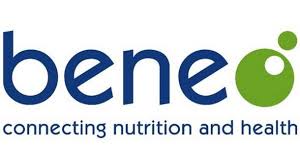News
Clean label comes ahead of brand
17 Oct 2018Consumers are now more interested in clean label ingredients instead of product descriptions or the brand name itself, when shopping for new foods and drinks, according to a new global survey – highlighting the ongoing importance of clean label products.

Natural and clean label ingredients have become an absolute expectation for consumers, but what they consider to be natural varies widely. Ingredient supplier Beneo commissioned this latest poll among 3,000 online consumers in the United States, Germany and the UK. It found 59% of respondents expected a ‘natural’ product to be healthy, 53% said they thought it should not be genetically modified, and 50% equated ‘natural’ with high quality.
Food manufacturers have often struggled with consumer expectations of naturalness, especially since it lacks a precise definition (except in relation to flavourings in the EU). And some of the attributes that make a product ‘clean label’ for consumers are not necessarily those that a manufacturer considers when switching out artificial ingredients. Low sugar, for example, was associated with natural products for 39% of global consumers, while food safety (40%) and ‘pure taste’ (44%) were also top expectations.
Previously, the term ‘clean label’ tended to refer to simplified ingredient lists and removal of artificial ingredients, but its definition has expanded in recent years, and is now widely understood to include concepts like ‘free from’, not just in terms of allergens, but also from animal cruelty, genetically modified ingredients and unsustainable supply chains. Reflecting this shift, Innova Market Insights refers to ‘clear label’, meaning transparency about how ingredients are sourced, as well as about what is in the product.
While BENEO’s latest survey underlined the importance of clean label ingredients, product description and brand were still important for a large proportion of consumers – 49% and 45% respectively. However, it also suggests brand value is reliant on how ingredient lists and product claims match up with consumer expectations, as shoppers look for clear, relevant claims. Among survey respondents, ‘no preservatives/made with natural ingredients’ was the claim most closely associated with naturalness.
The degree to which consumers expect natural ingredients is highly dependent on product category, too. Manufacturers of foods and drinks for children, for example, might have a long list of ingredients that consumers generally would prefer to avoid. On the other hand, consumers concerned with animal welfare may be more accepting of less ‘clean’ ingredients in plant-based meat and milk alternatives, because they place more importance on animal welfare.
The bottom line is that manufacturers of iconic food brands must be aware that the brand alone may no longer be sufficient to meet consumer demands. Yet they walk a fine line when it comes to reformulation with more natural ingredients, and must take care not to alienate loyal consumers.
Related news

PepsiCo formulates ‘naked’ Cheetos and Doritos products
31 Dec 2025
US food giant PepsiCo has launched its Simply NKD range, a move it says reimagines its popular products with new formulations free from artificial flavours, dyes, and colours.
Read more
Debate over ban on ‘meaty’ names for plant-based products reaches stalemate
26 Dec 2025
The debate over a ban on plant-based products using “meaty” terms has reached a stalemate, leaving manufacturers in limbo and still facing overhauls to their marketing and packaging.
Read more
Has ‘clean’ had its day?
22 Dec 2025
Wielding clean-label positioning and fortification as marketing levers is a dangerous strategy, and brands would be better off explaining the hows and whys of the ingredients in their products, say experts.
Read more
Bigging up bean-based products and consumption in Britain
19 Dec 2025
Non-profit organisation the Food Foundation has launched a campaign, “Bang in Some Beans”, designed to increase UK consumers’ legume consumption.
Read more
Ingredient transparency key to success in European natural health market
12 Dec 2025
Europe’s $40.7 billion supplements market is growing fast, fuelled by demand for products that support healthy ageing, mental wellbeing, and preventive health, say experts.
Read more
Sorghum emerges as better-for-you hero ingredient
9 Dec 2025
With the launch of Novak Djokovic’s sorghum-based brand, the grain’s popularity in the better-for-you snacking sphere is on the rise, thanks to its nutritional and sensory properties.
Read more
Innovation promise in 'maturing' plant-based dairy alternatives market
8 Dec 2025
Plant-based dairy is a maturing market that still faces significant hurdles around taste, functionality, nutrition, and price, but industry is innovating fast, according to experts speaking at Fi Europe.
Read more
Celebrating the winners of the Fi Europe Innovation Awards 2025
3 Dec 2025
Food industry stakeholders celebrated as the winners of the Fi Europe Innovation Awards were announced at a ceremony in Paris.
Read more
Yuka’s food scanning app helps consumers make healthier choices
2 Dec 2025
Global food scanning app Yuka helps consumers understand the content of their shopping baskets and shapes producers’ reformulation plans.
Read more
Non-UPF Program extends certification scheme to entire food industry
30 Nov 2025
The Non-UPF Program has extended its certification scheme to the wider food sector, championing a move towards healthier consumption habits.
Read more

